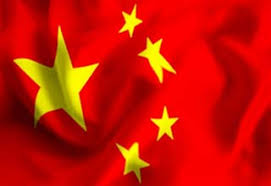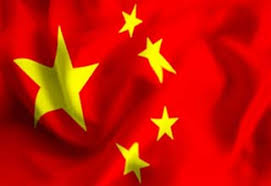
With new Covid-19 outbreaks and massive floods disrupting business operations, there was a sharp drop in factory output and retail sales growth in China for July – which also missed expectations. According to analysts, these are new signals of losing steam in the recovery of the Chinese economy.
Data from the National Bureau of Statistics (NBS) showed on Monday a drop growth of 6.4 per cent year on year in industrial production in the second largest economy of the world for July which was lower than the expectations of economists of a growth rate of 7.8 per cent. The growth rate in the previous month of June was 8.3 per cent.
Data showed a growth rate of 8.5 per cent year on year in retail sales in July which was far lower than analysts’ expectations of a 11.5 per cent rate of growth after a 12.1 per cent year on year growth in June.
While reaching the pre-pandemic levels of growth, China's economic expansion appears to be losing steam as it struggles to adjust to supply chain bottlenecks and higher input costs. Additionally, authorities imposed fresh restrictions because of new outbreaks of Covid-19 which impacted factory output that was already suffering from severe weather throughout the summer.
The surprisingly sharp slowdown in the engine of global growth resulted in Asian shares going down on Monday.
Data released earlier in the month about growth in exports, the economic component that primarily helped the Chinese economy to rebound from the pandemic slump last year, slowed down unexpectedly in July this year.
The economic recovery of the Chinese economy is still uneven because of the sporadic outbreaks of the pandemic and natural disasters, said Fu Linghui, an NBS spokesperson, at a briefing on Monday.
"The domestic economic recovery still faces many challenges, and constraints on production increased," said Fu.
Fresh covid-19 outbreaks in a number of cities have forced authorities to re-impose strict social restrictions which have hit a number of sectors – particularly the travel and hospitality industry in the country.
"Given China's 'zero tolerance' approach to Covid, future outbreaks will continue to pose a significant risk to the outlook, even though around 60% of the population is now vaccinated," said Louis Kuijs, head of Asia economics at Oxford Economics, in a note.
Additionally, a number of provinces of the country have faced severe weather with Henan province experiencing record rainfall last month, resulting floods that killed more than 300 people.
Small and medium-sized firms have in particular been hit by higher commodity prices and smaller companies are unable to transfer the price hike in raw materials to their customers, said a report quoting a sales manager at a medical equipment factory located in the eastern province of Jiangsu.
"We don't dare to increase our prices...but our prices cannot fall, otherwise there will be no profit at all," the manager reportedly said.
The NBS said on Monday that producer price inflation in China, which surged by 9 per cent year on year in July, is likely to continue for some time now.
"Although they are unlikely to inject massive stimulus to boost headline growth, the central bank will maintain an easing bias," said ANZ analysts in a note.
(Source:www.irishtimes.com)
Data from the National Bureau of Statistics (NBS) showed on Monday a drop growth of 6.4 per cent year on year in industrial production in the second largest economy of the world for July which was lower than the expectations of economists of a growth rate of 7.8 per cent. The growth rate in the previous month of June was 8.3 per cent.
Data showed a growth rate of 8.5 per cent year on year in retail sales in July which was far lower than analysts’ expectations of a 11.5 per cent rate of growth after a 12.1 per cent year on year growth in June.
While reaching the pre-pandemic levels of growth, China's economic expansion appears to be losing steam as it struggles to adjust to supply chain bottlenecks and higher input costs. Additionally, authorities imposed fresh restrictions because of new outbreaks of Covid-19 which impacted factory output that was already suffering from severe weather throughout the summer.
The surprisingly sharp slowdown in the engine of global growth resulted in Asian shares going down on Monday.
Data released earlier in the month about growth in exports, the economic component that primarily helped the Chinese economy to rebound from the pandemic slump last year, slowed down unexpectedly in July this year.
The economic recovery of the Chinese economy is still uneven because of the sporadic outbreaks of the pandemic and natural disasters, said Fu Linghui, an NBS spokesperson, at a briefing on Monday.
"The domestic economic recovery still faces many challenges, and constraints on production increased," said Fu.
Fresh covid-19 outbreaks in a number of cities have forced authorities to re-impose strict social restrictions which have hit a number of sectors – particularly the travel and hospitality industry in the country.
"Given China's 'zero tolerance' approach to Covid, future outbreaks will continue to pose a significant risk to the outlook, even though around 60% of the population is now vaccinated," said Louis Kuijs, head of Asia economics at Oxford Economics, in a note.
Additionally, a number of provinces of the country have faced severe weather with Henan province experiencing record rainfall last month, resulting floods that killed more than 300 people.
Small and medium-sized firms have in particular been hit by higher commodity prices and smaller companies are unable to transfer the price hike in raw materials to their customers, said a report quoting a sales manager at a medical equipment factory located in the eastern province of Jiangsu.
"We don't dare to increase our prices...but our prices cannot fall, otherwise there will be no profit at all," the manager reportedly said.
The NBS said on Monday that producer price inflation in China, which surged by 9 per cent year on year in July, is likely to continue for some time now.
"Although they are unlikely to inject massive stimulus to boost headline growth, the central bank will maintain an easing bias," said ANZ analysts in a note.
(Source:www.irishtimes.com)





